Insulators in Biology
In biology, insulators are materials or structures that prevent the flow of electrical current or heat. In the context of living organisms, insulators play a crucial role in maintaining homeostasis, protecting against environmental extremes, and facilitating various physiological processes.
Types of Insulators in Biology
There are several types of insulators that are important in biological systems:
- Electrical insulators: These materials prevent the flow of electrical current within living organisms. For example, the myelin sheath that surrounds nerve cells acts as an electrical insulator, allowing for rapid transmission of nerve impulses.
- Thermal insulators: Biological systems use various structures to regulate temperature and prevent heat loss. Examples include the insulating layer of blubber in marine mammals and the feather insulation in birds.
- Protective insulators: Some organisms use insulating materials for protection against environmental extremes. For instance, the cuticle of plants serves as a protective insulator against water loss and pathogens.
Functions of Insulators in Biology
Insulators serve several important functions in biological systems:
- Regulation of temperature: Insulators help organisms maintain their internal temperature within a narrow range, a process known as thermoregulation.
- Protection: Insulators protect organisms from extreme environmental conditions, such as temperature fluctuations, physical damage, and pathogen invasion.
- Facilitation of physiological processes: In some cases, insulators facilitate specific biological processes. For example, the insulating properties of fat tissues in animals provide energy storage and cushioning for organs.
Study Guide
To understand insulators in biology, consider the following study guide:
- Learn about the different types of insulators found in biological systems, including electrical, thermal, and protective insulators.
- Explore specific examples of insulators in various organisms and their adaptive significance.
- Understand the physiological mechanisms by which insulators help maintain homeostasis and support biological functions.
- Discuss the role of insulators in protecting organisms from environmental stressors and promoting survival.
- Examine the evolutionary implications of insulators in the context of adaptation to diverse habitats and ecological niches.
By mastering the concept of insulators in biology, you will gain a deeper understanding of how living organisms maintain internal stability and cope with environmental challenges.
.◂Biology Worksheets and Study Guides High School. Genetics and heredity II
Worksheet/Answer key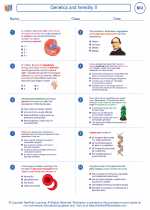 Genetics and heredity II
Genetics and heredity II  Worksheet/Answer key
Worksheet/Answer key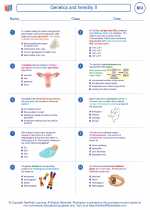 Genetics and heredity II
Genetics and heredity II  Worksheet/Answer key
Worksheet/Answer key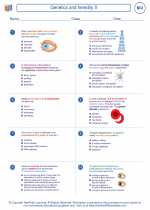 Genetics and heredity II
Genetics and heredity II  Vocabulary/Answer key
Vocabulary/Answer key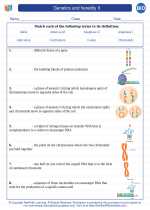 Genetics and heredity II
Genetics and heredity II  Vocabulary/Answer key
Vocabulary/Answer key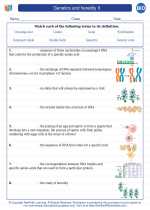 Genetics and heredity II
Genetics and heredity II  Vocabulary/Answer key
Vocabulary/Answer key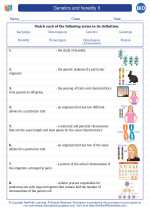 Genetics and heredity II
Genetics and heredity II  Vocabulary/Answer key
Vocabulary/Answer key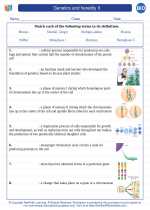 Genetics and heredity II
Genetics and heredity II  Vocabulary/Answer key
Vocabulary/Answer key Genetics and heredity II
Genetics and heredity II  Vocabulary/Answer key
Vocabulary/Answer key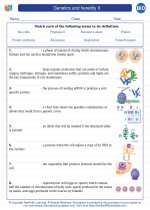 Genetics and heredity II
Genetics and heredity II  Vocabulary/Answer key
Vocabulary/Answer key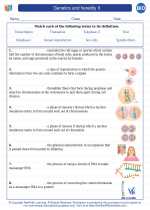 Genetics and heredity II
Genetics and heredity II 

 Worksheet/Answer key
Worksheet/Answer key
 Worksheet/Answer key
Worksheet/Answer key
 Vocabulary/Answer key
Vocabulary/Answer key
 Vocabulary/Answer key
Vocabulary/Answer key
 Vocabulary/Answer key
Vocabulary/Answer key
 Vocabulary/Answer key
Vocabulary/Answer key
 Vocabulary/Answer key
Vocabulary/Answer key
 Vocabulary/Answer key
Vocabulary/Answer key
 Vocabulary/Answer key
Vocabulary/Answer key

The resources above cover the following skills:
LIFE SCIENCE (NGSS)
Heredity: Inheritance and Variation of Traits
Students who demonstrate understanding can:
Ask questions to clarify relationships about the role of DNA and chromosomes in coding the instructions for characteristic traits passed from parents to offspring.